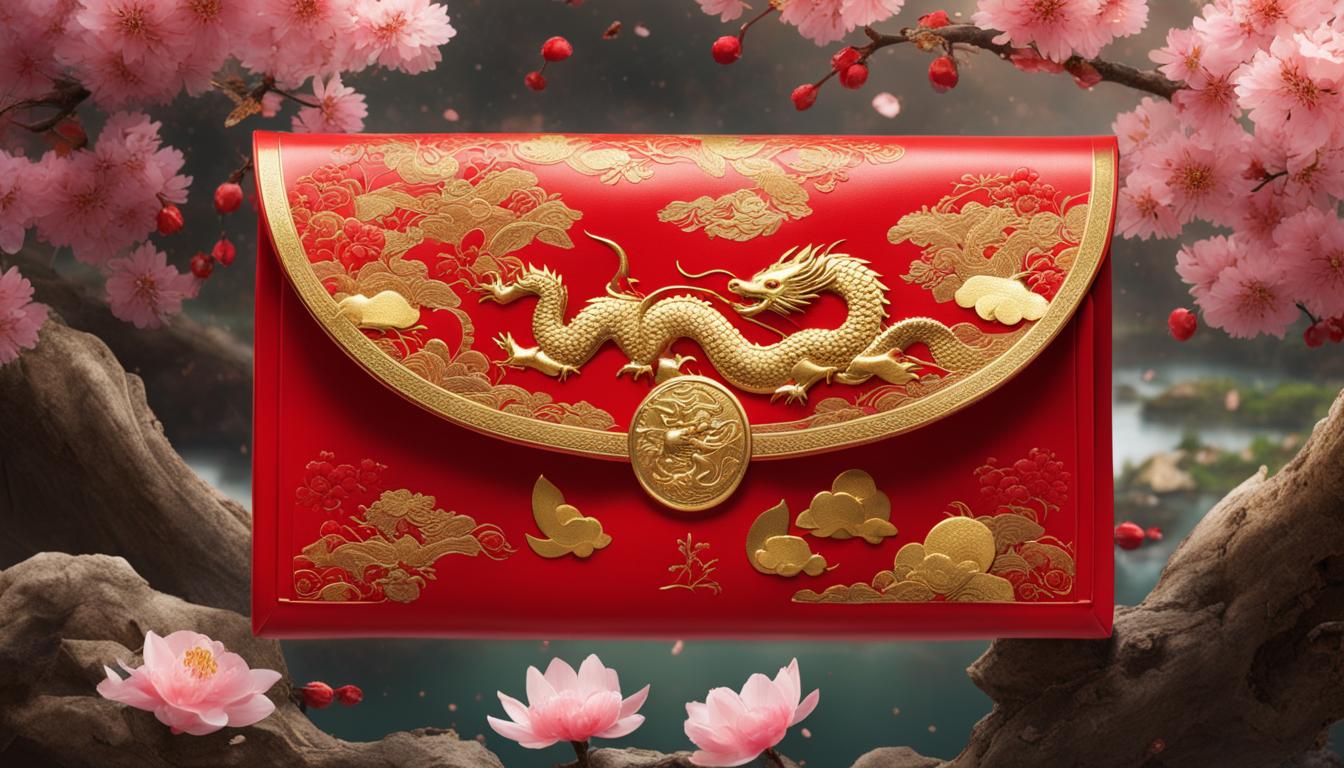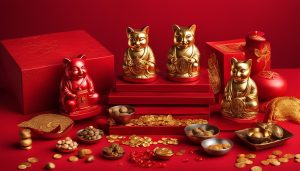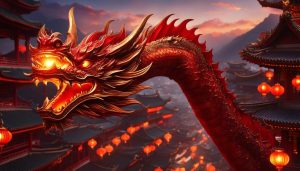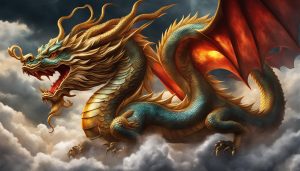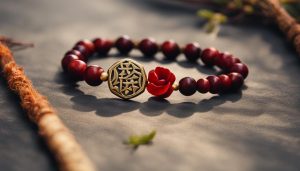Chinese culture has a rich tradition of using various customs and symbols to bring good luck. From the color red, which represents happiness and prosperity, to the use of lucky animals like the dragon and tortoise, Chinese people have embraced these practices to attract good fortune. These traditions are deeply rooted in ancient beliefs and continue to be cherished in Chinese culture today.
Contents
- 1 The Color Red
- 2 Lucky Animals in Chinese Culture
- 3 Chinese Puns and Wordplay
- 4 Lucky Numbers in Chinese Culture
- 5 Traditional Chinese Practices for Good Luck
- 6 Conclusion
- 7 FAQ
- 7.1 What are some Chinese customs for good luck?
- 7.2 Why is the color red significant in Chinese culture?
- 7.3 What do the dragon and tortoise symbolize in Chinese culture?
- 7.4 How are puns and wordplay used in Chinese culture?
- 7.5 Are there any lucky numbers in Chinese culture?
- 7.6 What are some traditional Chinese practices for good luck?
- 7.7 How do these traditions contribute to Chinese culture?
- 8 Source Links
Key Takeaways:
- Chinese people have a long-standing tradition of using customs and symbols to attract good luck.
- The color red is believed to bring good luck and is seen in various celebrations and events.
- Lucky animals, such as the dragon and tortoise, hold significant meaning in Chinese culture.
- Chinese wordplay and lucky numbers are also used to invite good fortune.
- Traditional practices like Feng Shui play a role in promoting positive energy and attracting good luck.
The Color Red
In Chinese culture, the color red is believed to symbolize good luck and prosperity. It holds significant meaning and is often associated with joyous occasions and celebrations. One notable example is traditional Chinese weddings, where red plays a prominent role. The bride typically wears a red wedding dress, and red decorations are used to create a festive atmosphere. Red envelopes, known as hongbao, are also an important tradition during special events like Chinese New Year.
The use of red envelopes is a way to give money as a gift and symbolize good fortune. It is believed that the red color wards off evil spirits and brings blessings to the recipient. The vibrant hue is also seen in other aspects of Chinese culture, such as the traditional lion dance performances during festivals, where the lions are adorned in vibrant red costumes. The color red in Chinese culture represents luck, happiness, and prosperity.
Traditional Chinese Wedding Customs
Chinese weddings are steeped in tradition and symbolism. Besides the prominence of the color red, there are other customs associated with good luck. For example, a traditional Chinese wedding ceremony often includes rituals like the tea ceremony, where the newlyweds serve tea to their elders as a sign of respect and gratitude. This practice is believed to bring blessings and good fortune to the couple.
Another interesting wedding custom is the exchange of jewelry known as the “Four Blessings.” The bride receives four pieces of jewelry: a necklace, bracelet, earrings, and a ring. Each piece symbolizes one of the four blessings: wealth, longevity, health, and fertility. These customs highlight the importance of good luck and prosperity in Chinese weddings.
| Traditional Chinese Wedding Customs | Symbolism |
|---|---|
| Color Red | Good luck and prosperity |
| Tea Ceremony | Blessings and respect for elders |
| Four Blessings Jewelry | Wealth, longevity, health, and fertility |
Lucky Animals in Chinese Culture
In Chinese culture, animals hold deep symbolic meaning and are often associated with luck and prosperity. Two of the most significant lucky animals in Chinese culture are the dragon and the tortoise.
Dragon – Symbol of Power and Prosperity
The dragon is considered a symbol of power, prosperity, and strength in Chinese culture. It holds immense significance and is deeply rooted in ancient Chinese beliefs. Chinese emperors were often associated with dragons, and being born in the Year of the Dragon is believed to bring good luck.
The dragon has a majestic and powerful presence, representing the forces of nature and the celestial world. It is often depicted as a creature with a long, serpentine body, sharp claws, and the ability to fly. The dragon’s association with power and prosperity makes it a popular symbol in various forms of Chinese art, including paintings, sculptures, and clothing.
Tortoise – Symbol of Longevity and Wisdom
The tortoise is another lucky animal in Chinese culture, symbolizing longevity and wisdom. It is believed to possess spiritual powers and is associated with ancient Chinese mythology. The tortoise’s long lifespan and ability to withstand the test of time make it a revered creature in Chinese tradition.
In Chinese symbolism, the tortoise represents wisdom, knowledge, and a long, healthy life. It is often depicted with a sturdy shell and an amiable expression, emphasizing its status as a symbol of good fortune. The tortoise is also associated with the element of water, which in turn represents wealth and abundance.
Table: Lucky Animals in Chinese Culture
| Animal | Symbolism |
|---|---|
| Dragon | Power, prosperity, strength |
| Tortoise | Longevity, wisdom, abundance |
The dragon and the tortoise are just two examples of the many lucky animals deeply revered in Chinese culture. Their representations in various forms of art and their symbolism in ancient beliefs continue to be cherished by Chinese people today. Whether it’s displaying a dragon sculpture in your home or wearing a tortoise-shaped amulet, incorporating these lucky animals into your life is believed to bring good luck, fortune, and blessings.
Chinese Puns and Wordplay
Chinese language is rich in wordplay and puns, which are often used to create auspicious phrases and bring good luck. These linguistic techniques are deeply embedded in Chinese culture and are believed to evoke positive energy and attract good fortune. Let’s explore some of the common wordplay and auspicious phrases that are part of the Chinese tradition.
Lucky Phrases and Their Meanings
Chinese wordplay often revolves around homophones, words that sound similar but have different meanings. This allows for the creation of auspicious phrases that convey positive sentiments. One popular phrase is “年年有余” (nián nián yǒu yú), which means “surplus year after year.” The word for “surplus” sounds similar to the word for “fish” in Chinese, symbolizing abundance and prosperity. By using this phrase, Chinese people express their hope for a year filled with abundance and blessings.
“年年有余” (nián nián yǒu yú) – Surplus year after year, symbolizing abundance and prosperity.
Another example is the phrase “发财” (fā cái), which means “to become wealthy” or “to get rich.” The pronunciation of “发财” sounds similar to the word for “hair” in Chinese, so it is common to see images of golden-haired gods during Chinese New Year, representing wealth and prosperity.
“发财” (fā cái) – To become wealthy or get rich.
Ancient Tradition Meets Modern Wordplay
Chinese wordplay and auspicious phrases have evolved over time, incorporating modern concepts and cultural references. For example, the number 8 is considered lucky in Chinese culture because its pronunciation is similar to the word for “wealth” or “prosperity.” In recent years, the phrase “发发发” (fā fā fā), which sounds similar to the word for “get rich” in Chinese, has gained popularity as a way to wish someone financial success.
Similarly, during the Chinese New Year, it is common to see phrases like “恭喜发财” (gōng xǐ fā cái) or “万事如意” (wàn shì rú yì) displayed on red banners and greeting cards. “恭喜发财” translates to “congratulations and prosperity” while “万事如意” means “may everything go as you wish.” These phrases carry well-wishes for good luck and success in the coming year.
Embracing Wordplay and Good Fortune
Chinese wordplay and auspicious phrases continue to play an important role in Chinese culture, not only during special occasions but also in everyday life. From Chinese New Year celebrations to everyday greetings, these linguistic traditions add depth and charm to the language, fostering a sense of positivity and good fortune.
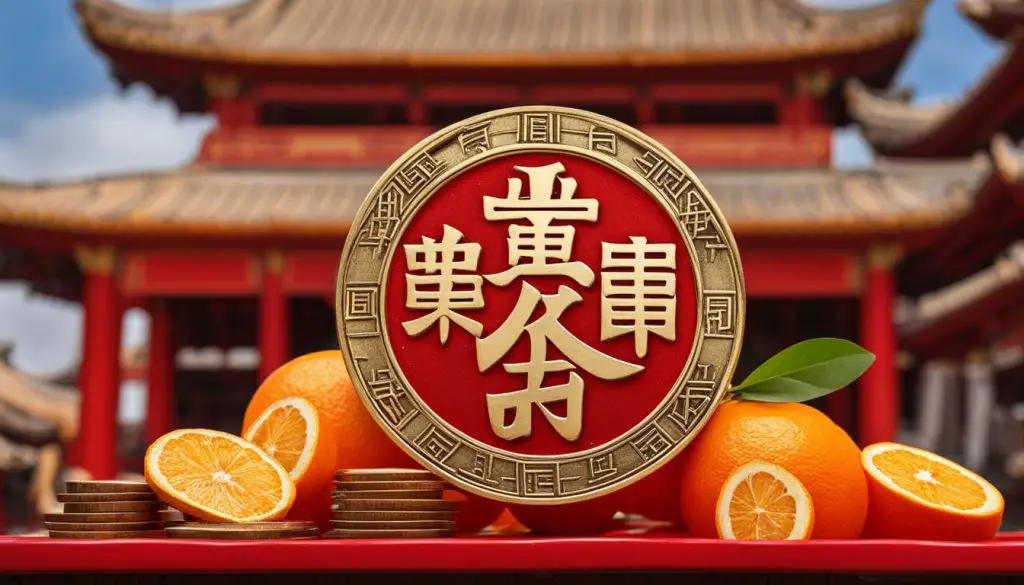
Lucky Numbers in Chinese Culture
Numbers hold a special significance in Chinese culture. Certain numbers are considered lucky and believed to bring good fortune. These numbers are deeply rooted in ancient Chinese beliefs and continue to be cherished in Chinese tradition. Understanding the significance of numbers in Chinese culture can provide valuable insights into the customs and practices that shape this rich heritage.
The Significance of Lucky Numbers
In Chinese culture, the number 6 is associated with smoothness and flow. It is considered lucky and represents prosperity and success. This belief stems from the pronunciation of the word ‘liù,’ which sounds similar to the word for ‘smooth’ in Chinese. As a result, many Chinese people view the number 6 as a symbol of good luck and incorporate it into their daily lives.
Another highly auspicious number in Chinese culture is 8. The pronunciation of ‘bā’ (eight) in Mandarin is similar to the word for ‘wealth’ or ‘prosper.’ This association has led to the belief that the number 8 brings prosperity and financial success. It is common to see people in China choose phone numbers, license plates, and even addresses with the number 8 to attract good fortune.
Lastly, the number 9 holds great significance in Chinese culture. It is associated with longevity and represents everlasting. The pronunciation of the word ‘jiǔ’ (nine) in Mandarin is similar to the word for ‘long-lasting’ or ‘eternal.’ Because of this connection, the number 9 is considered lucky and is often associated with positive outcomes and long-lasting success.
| Lucky Number | Symbolism |
|---|---|
| 6 | Smoothness, flow, prosperity |
| 8 | Wealth, prosperity |
| 9 | Longevity, everlasting |
Chinese people embrace these lucky numbers in various aspects of their lives. From selecting auspicious dates for important events to choosing lucky phone numbers and addresses, these numbers play a significant role in attracting good luck and positive energy. By understanding the symbolism behind these numbers, you can gain a deeper appreciation for the customs and traditions that have been passed down through generations in Chinese culture.
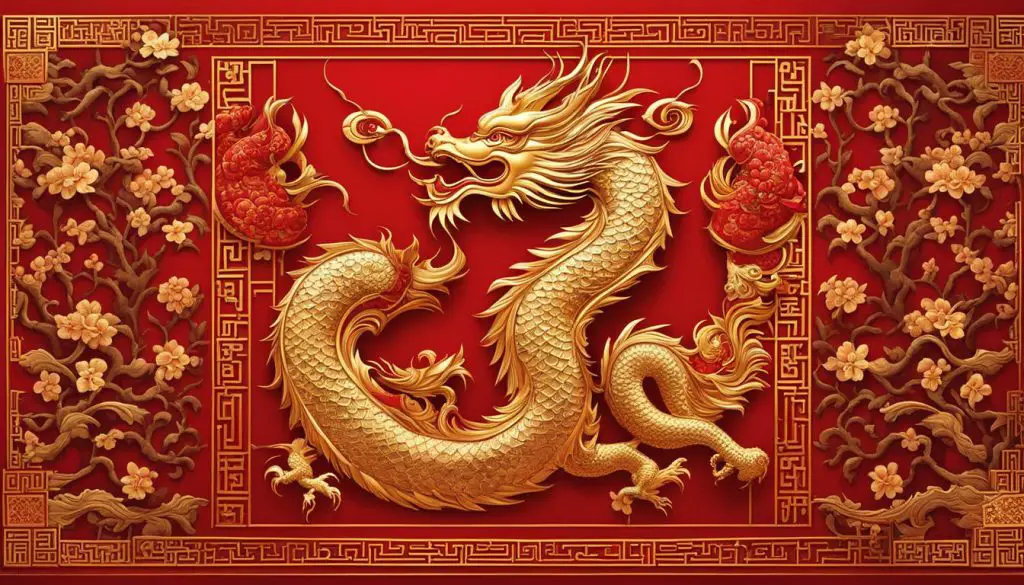
By incorporating lucky numbers into their lives, Chinese people strive to bring good fortune and prosperity. Whether it’s through the choice of numbers in their daily routines or the use of these numbers in special occasions and celebrations, the power of symbolism and belief in luck remains strong in Chinese culture.
Traditional Chinese Practices for Good Luck
In Chinese culture, traditional practices like Feng Shui and ancient beliefs play a significant role in attracting good luck and positive energy. These customs have been passed down through generations and continue to be cherished in Chinese culture today.
Feng Shui, which translates to “wind-water,” is the art of arranging objects and spaces in a harmonious way to promote positive energy and good fortune. It involves considering the placement of furniture, colors, and shapes to create balance and harmony within a space. Feng Shui practitioners believe that when the energy, or Qi, flows smoothly through a space, it can bring luck, prosperity, and well-being.
“Feng Shui is about creating a positive environment that supports your goals and aspirations. By harmonizing the energy flow in your home or workplace, you can enhance your luck and attract good fortune,” says Feng Shui expert Li Wei.
Ancient Chinese beliefs also play a role in attracting good luck. The use of lucky charms and talismans is common practice in Chinese culture. These objects, often adorned with lucky symbols such as the dragon and the phoenix, are believed to bring protection and good fortune to the bearer.
Genuine Insights about Feng Shui Practices in Chinese Culture
To understand the significance of Feng Shui practices in Chinese culture, let’s take a look at a comparative table showcasing some key elements:
| Feng Shui Practices | Ancient Chinese Beliefs |
|---|---|
| Arrange furniture to create a balanced flow of energy | Use of lucky charms and talismans for protection and good fortune |
| Consider colors and shapes to create harmony | Belief in the power of symbolism and lucky symbols |
| Place mirrors strategically to enhance positive energy | Seeking guidance from fortune-tellers and astrology for favorable outcomes |
| Keep spaces clean and clutter-free to allow energy to flow freely | Use of auspicious phrases and wordplay to attract good luck |
These practices, rooted in ancient Chinese wisdom, continue to be embraced by many in their pursuit of good luck and fortune. Whether you choose to incorporate Feng Shui principles into your home or carry a lucky charm, these age-old traditions remind us of the importance of positive energy and the belief that good luck can be attracted by creating harmony within ourselves and our surroundings.
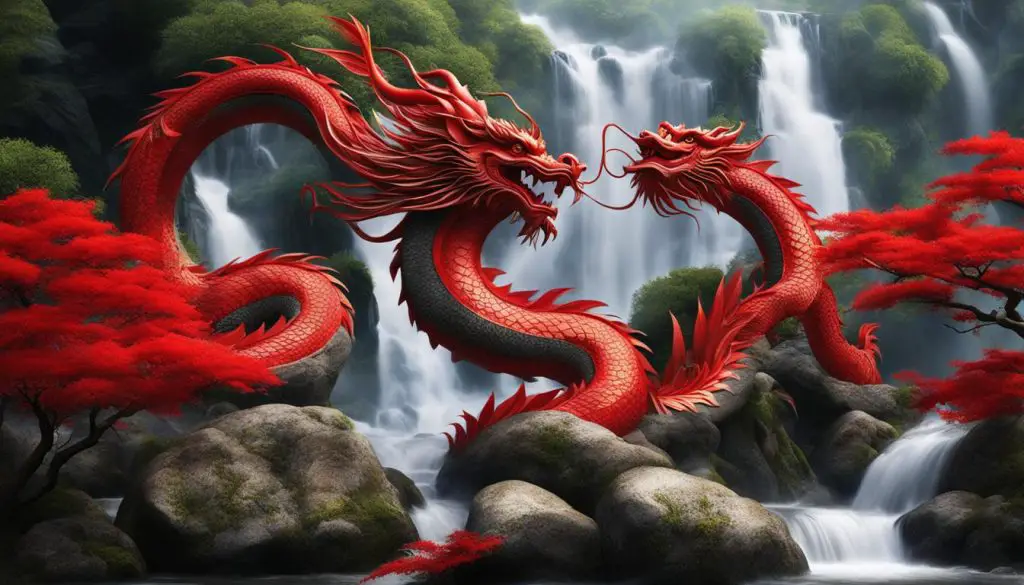
By embracing these traditional practices, you can invite good luck and positive energy into your life, just as the Chinese people have done for centuries.
Conclusion
Chinese traditions for bringing good luck hold a deep-rooted place in the culture, attracting fortune and prosperity. From the use of the auspicious color red to the symbolism of lucky animals and numbers, these customs have been cherished for centuries.
Whether it’s donning red attire during Chinese New Year or incorporating Feng Shui principles into your home, immersing yourself in these age-old traditions can bring luck and joy to your life.
Embracing these practices not only adds charm to Chinese culture but also serves as a reminder of the importance of positivity and the pursuit of happiness. So, explore the magic of Chinese customs for attracting good fortune and allow the auspicious traditions to guide you towards a life filled with luck and abundance.
FAQ
What are some Chinese customs for good luck?
Chinese customs for good luck include using the color red, incorporating lucky animals like the dragon and tortoise, and practicing wordplay and puns for auspicious phrases.
Why is the color red significant in Chinese culture?
The color red is believed to bring good luck and prosperity in Chinese culture. It is often used during celebrations and joyous occasions like weddings and Chinese New Year.
What do the dragon and tortoise symbolize in Chinese culture?
The dragon symbolizes power, prosperity, and strength, while the tortoise is associated with longevity and wisdom. Both animals are considered lucky in Chinese tradition.
How are puns and wordplay used in Chinese culture?
Chinese culture uses puns and wordplay to create auspicious phrases and bring good luck. For example, during Chinese New Year, phrases like “年年有余” (nián nián yǒu yú) are used, which means “surplus year after year.”
Are there any lucky numbers in Chinese culture?
Yes, certain numbers are considered lucky in Chinese culture. The number 6 represents smoothness and flow, 8 is associated with prosperity and wealth, and 9 signifies longevity and everlasting.
What are some traditional Chinese practices for good luck?
Traditional Chinese practices for good luck include Feng Shui, the belief in arranging objects and spaces harmoniously, and the use of lucky charms and talismans.
How do these traditions contribute to Chinese culture?
These traditions not only add charm to Chinese culture but also serve as a reminder of the importance of positivity and the pursuit of happiness. They continue to bring luck and joy to Chinese people and those who embrace the culture.

